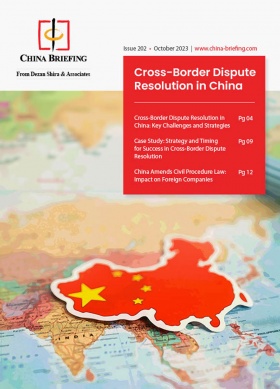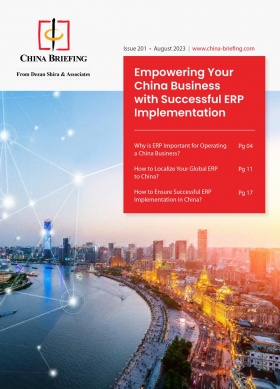Employees Leave Management in Guangdong: New Regulations
Employee leave management is an important part of enterprise human resource management, significantly impacting both the efficiency of a company’s human capital and employee morale. Mishandling this process can even lead to labor disputes, particularly if the company’s leave policy fails to comply with mandatory requirements.
Similar to other areas of human resource management, leave management in China is subject to local variances. Despite the existence of national standards, each province or city retains certain discretion to establish its own regulations.
This article focuses on Guangdong’s recent regulation regarding leave management, exploring key aspects and addressing frequently asked questions.
Guangdong’s new regulation on leave management: Key changes
On September 22, 2023, the Guangdong Provincial Department of Human Resources and Social Security issued the ‘Regulation on Leave Treatment and Death Compensation for Employees in Guangdong Province’.
This updated regulation, effective retrospectively from July 1, 2023, marks a significant shift from the previous version, which was in force from 1997 to 2023.
Compared to its predecessor, the new regulation aligns leave policies with national standards and incorporates recent labor regulations in Guangdong province. Notable adjustments include the removal of outdated late marriage leave, late childbearing leave, and home visit leave. Instead, the new regulation introduces parent care leave and childcare leave, accompanied by detailed guidelines on managing these new types of leave.
The following summary outlines the leave policies outlined in both the old and new regulations.
|
Leave Policies in the Old and New Regulation on Leave Treatment and Death Compensation for Employees in Guangdong Province |
|||
| Leave category | Old regulation (/year) | New regulation (/year) | Remark |
| Public holiday | 7 days | 11 days | |
| Maternity leave | 90 days | 98 days (basic maternity leave) + 80 days (local extra maternity) leave =178 days | 80 days local extra maternity leave are granted for female employees working in Guangdong and bear child in accordance with laws and regulations |
| Paternity leave | NA | 15 days | Granted to male employees who bear children in accordance with laws and regulations. |
| Late Marriage leave | 10 days | Cancelled | |
| Late Childbearing leave | 30 days | Cancelled | |
| Home visit leave | 20-30 days | Cancelled | |
| Parent care leave | NA | 5-15 days | Employees can apply for parent care leave provide the parent(s) is a resident in Guangdong and is over 60 years old |
| Childcare leave (Parental leave) | NA | 10 days | Employees can apply for 10 days childcare leave if they have child/children under 3 years old |
| Bereavement leave | 3 days | 3 days | In case of the death of an employee’s immediate family member (parent, spouse, child), 3 days of bereavement leave will be granted
|
FAQ on leave management regulation in Guangdong province
Question 1: How should I take childcare leave?
(1) For employees whose child/children are under 3 years old, she/he can enjoy 10 days of childcare leave per year.
(2) The childcare leave is calculated on an annual basis. To be more accurate, the childcare leave is calculated based on the child’s birth “anniversaries”. For example, if the child was born on December 19, 2022, either parent will enjoy 10 days of childcare leave in Guangdong during the period from December 19, 2022, to December 18, 2023, from December 19, 2023, to December 18, 2024, and from December 19, 2024 to December 18, 2025.
(3) The childcare leave cannot be added up. That is to say, even if an employee has more than one child under three years old at the same time, he/she can only enjoy 10 days of childcare leave each year until the youngest child reaches three years old.
(4) In the same calculation year, childcare leave can be granted separately, for a maximum of two times.
Question 2: How should I take parent care leave?
(1) Employees can take five days of parent care leave per year, provided that their parents/parent are Guangdong residents, gave birth to only one child during the period of the one-child policy, and is over 60 years old. Employees can enjoy no more than 15 days of parent care leave per year when their parent needs to be hospitalized for treatment (diagnosis certificate, hospitalization certificate, and other materials issued by the medical institution are required).
(2) The parent care leave cannot be added up. That is to say, even if both parents are over 60 years old, their children can only enjoy five days of parent care leave each year or a maximum of 15 days of parent care leave each year when the parents are hospitalized.
(3) Parent care leave is calculated on a calendar year basis and shall be arranged for no more than two times each year.
Question 3: How are the salaries for childcare leave and parent care leave calculated?
(1) The employer should improve their internal labor rules and regulations and clarify the salary treatment during the holidays such as childcare leave.
(2) The employer should strengthen the collective wage negotiation, clarify the wage treatment during the childcare leave and parent care leave through consultation with the employees, and sign the collective contract.
(3) Employers are encouraged to pay wages during the period of parental leave and nursing leave in accordance with the wage standards during the period of incentive leave and paternity leave.
(4) Employers can negotiate with the employees about the salaries for childcare leave and parent care leave, but salary during the period of the childcare leave and parent care leave shall not be lower than the minimum wage standard of the local area.
Question 4: Can employees enjoy alternative leaves for untaken childcare leave and parent care leave?
In principle, unused leave days cannot be carried over to the subsequent year. However, if an employee is unable to utilize all allocated childcare or parent care leave days within the year due to company-related reasons, the company is obligated to arrange alternative leaves for the employee to compensate for the unused childcare or parent care leave.
Question 5: If the employee’s parents are non-Guangdong residents, can the employee take the leave?
In this case, it is not mandatory for employers to provide paid parent care leave. However, the government encourages the employer to provide the same benefit to all their employees.
Question 6: Can I still take paid annual leave after taking childcare leave and parent care leave?
Yes. Childcare leave and parent care leave should not be included in an employee’s paid annual leave.
Question 7: How should other entitled leaves be scheduled?
In principle, the other leaves outlined in the table above, such as marriage leave, bereavement leave, home visit leave, maternity leave, incentive leave, and paternity leave, are to be arranged and taken continuously without any interruptions.
This contrasts with parent care leave and childcare leave, which can be taken separately within a calculation year, divided into a maximum of two periods. For instance, an employee may take three days of childcare leave initially and then opt for another seven days on a different occasion.
Question 8: Can the leaves be extended if they overlap with statutory public holidays, weekends, or other rest days?
No additional days of leave shall be added for the leaves mentioned in the table (i.e., marriage leave, bereavement leave, home visit leave, maternity leave, incentive leave, paternity leave, parent care leave, and childcare leave) where they overlap with statutory public holidays or other rest days.
Dezan Shira & Associates professionals closely monitor China’s national and regional employment regulations. If you have any further questions or need any support for your operations in South China, please contact sandy.zhang@dezshira.com.
About Us
China Briefing is written and produced by Dezan Shira & Associates. The practice assists foreign investors into China and has done so since 1992 through offices in Beijing, Tianjin, Dalian, Qingdao, Shanghai, Hangzhou, Ningbo, Suzhou, Guangzhou, Dongguan, Zhongshan, Shenzhen, and Hong Kong. Please contact the firm for assistance in China at china@dezshira.com.
Dezan Shira & Associates has offices in Vietnam, Indonesia, Singapore, United States, Germany, Italy, India, Dubai (UAE), and Russia, in addition to our trade research facilities along the Belt & Road Initiative. We also have partner firms assisting foreign investors in The Philippines, Malaysia, Thailand, Bangladesh.
- Previous Article The China Project Media Company Announces Closure
- Next Article China’s Outbound Investment: Recent Developments, Opportunities, and Challenges








